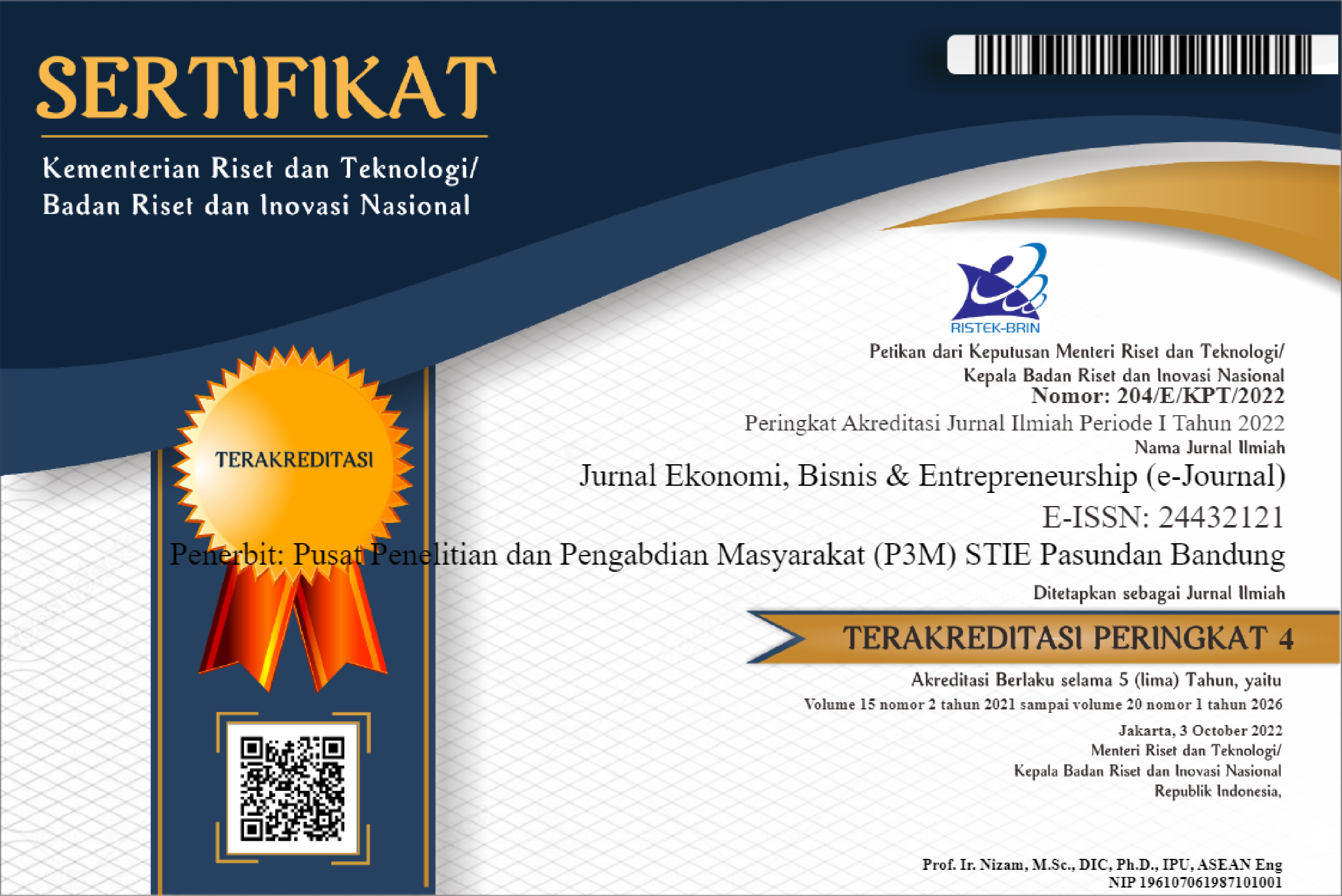Improving Task and Quality Performance: The Role of Affective Commitment, Engaged Employees and Creativity
DOI:
https://doi.org/10.55208/jebe.v17i2.478Keywords:
affective commitment, employee engagement, dedication, creativity, task, quality, performanceAbstract
Employee work quality within the fashion industry has received limited attention in the research literature. In order to fill this void in existing research, the author endeavored to examine the study model through a predictive methodology. This study utilized a survey methodology in which 72 employees from the fashion industry sector were selected as participants. The researcher employed the Structural Equation Modelling (SEM-PLS) technique to forecast the proposed study model. The analysis findings indicate that affective commitment considerably impacts employee engagement, namely in terms of dedication and employee creativity. The research findings also suggest that the factors of devotion and creativity exert a notable influence on task performance. Furthermore, it is seen that effective utilization of creativity can propel task performance, consequently exerting a positive influence on improving performance quality. The findings of this study indicate that the fashion industry sector has the potential to improve task and quality performance through the cultivation of affective commitment, dedication, and employee inventiveness.
Downloads
Published
How to Cite
Issue
Section
License
Copyright (c) 2023 Iwan Sidharta

This work is licensed under a Creative Commons Attribution-NonCommercial-ShareAlike 4.0 International License.








